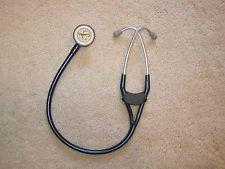
Many people are disappointed when their medical insurance doesn’t pay for everything. They want their office visits completely covered, their prescriptions covered, and any type of tests or x-rays covered. They even want things like birth control, which can be purchased for maybe $20 per month, included in their coverage. “Free” preventative care sounds great – who wouldn’t want that? Well, you probably don’t. Here’s why….
Would you like to buy auto insurance that covered oil changes and tires, not to mention things like transmission fluid changes and that expensive timing belt change? You probably would, but your auto insurance would cost an extra $1000 per year. The reason is that when insurance includes something that is certain to happen, all you are doing is paying for it through your policy instead of paying for it separately. When it gets wrapped up in that policy, there are fees and profit for the insurance company tacked on, costs associated with filing and paying the claim, and additional amounts tacked on by the place doing the oil change for the hassle of needing to file with the insurance company. While you could go get an oil change for $30 (or do it yourself for $15-20), you’ll pay the insurance company $40 to pay for it for you. Tires might be $100 each if you just pay yourself, but the insurance company will charge $150 each. You have involved a lot of middle men, all of whom need to get their cut for providing the service, plus you’ve picked a really complicated way to pay for things, which adds to your costs.
In addition, it is in the insurance company’s best interest to try to control the transaction to increase their profits. If they find a shop that will give them a break on what they pay for an oil change, they’ll require their customers to use that shop. With medical care, insurance companies reduce their costs by limiting the doctors that you can see. Don’t be surprised to see things like group visits to the doctor (several people with the same symptoms see the doctor at once and get a group diagnosis) or call-in and online office visits soon as insurance companies try to reduce the costs they pay and doctors try to still make money with the amounts they are reimbursed declining. (Note also that the need for insurance companies to reduce costs is being driven by requirements by the Affordable Care Act to cover a wide variety of things and yet do so under specified premium caps.)
Insurance is designed to pay for things that are probably not going to happen, but you could not afford to cover if they did. Most people would be in really bad shape if the home that they just started a 30-year mortgage on burned to the ground, so they have home owners’ insurance to pay for fires. In fact, loan companies know that most people would never pay off a loan on a home that was destroyed, so they require insurance on the home while there is a loan outstanding, and they get paid by the insurance company before the homeowners see a dime. Because the chances of your home burning down in any given year are very remote, the cost for insurance is fairly low.
For example, if you own a $200,000 home and live near a fire hydrant, the insurance company may calculate that the chances of your home burning down this year are 1000 to one. They would therefore charge you $2000 per year plus a small amount for a profit ($2000 = the value of the home divided by the chance it would be destroyed by a fire this year). Assuming they covered a thousand homes, on average one home would burn down in a given year, but because everyone is paying say $2200, there would be enough money for the insurance company to cover the cost of the fire and still make a $20,000 profit. The insurance company also takes advantage of the fact that there are many years when nothing happens by investing the funds they receive until they need to pay out claims. This is actually where insurance companies make most of their money.
So get home insurance. Get term life insurance when you are young and the chances of you dying are low but the consequences enormous. Get liability insurance so that when you have an accident you can pay for the medical bills of others. Get major medical insurance that pays for the heart operation or the cancer treatments. These are true insuarance and are relatively inexpensive because the risk of the insurance company needing to pay you for a claim are remote, but cover things you probably will not be able to withstand financially if they do happen. For the things that are certain to happen, however, skip the insurance and pay yourself, right from your pocket. You’re doing it anyway when “insurance covers it.” You’re just paying the insurance copmany to write the check, and paying a higher price when you do so.
Contact me at [email protected], or leave a comment.
Disclaimer: This blog is not meant to give financial planning advice, it gives information on a specific investment strategy and picking stocks. It is not a solicitation to buy or sell stocks or any security. Financial planning advice should be sought from a certified financial planner, which the author is not. All investments involve risk and the reader as urged to consider risks carefully and seek the advice of experts if needed before investing.
About these ads